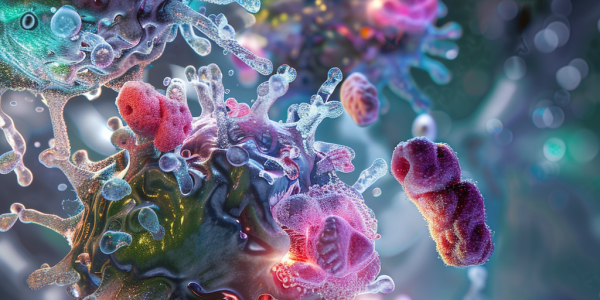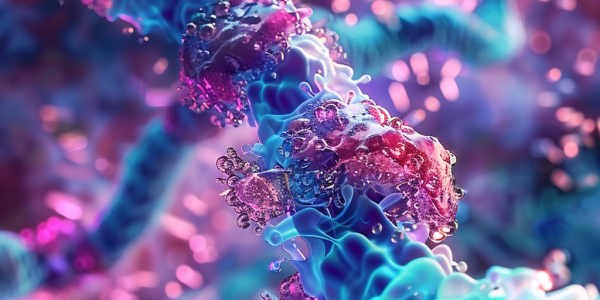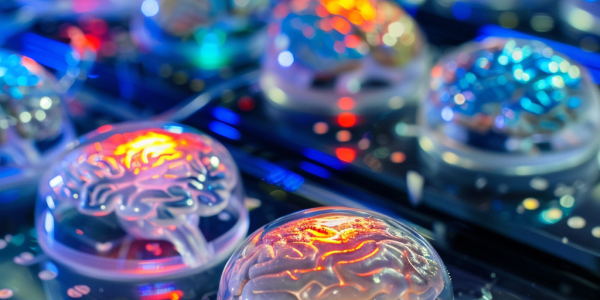Breakthrough Study Reveals ‘Dancing Molecules’ for Cartilage Repair
A groundbreaking study from Northwestern University reveals a novel injectable therapy using innovative ‘dancing molecules’ to repair damaged cartilage cells. This research, published in the Journal of the American Chemical Society, showcases how synthetic nanofibers can stimulate cellular receptors, offering significant advancements in regenerative medicine and potential treatments for conditions like osteoarthritis.
New Insights into Immune Responses: Mast Cells and Neutrophils Interact in Allergic Reactions
Recent research from the Max Planck Institute reveals groundbreaking insights into the immune system, highlighting the unexpected interaction between mast cells and neutrophils during allergic reactions. This study uncovers how mast cells can capture living neutrophils, enhancing our understanding of inflammation and potential therapeutic strategies for allergic diseases.
New Study Reveals Complex Dynamics of Phage Infections and Their Implications
A groundbreaking study by researchers from the University of Illinois Urbana-Champaign and Texas A&M University reveals new insights into phage infections and their impact on bacterial cells. Published on August 5, 2024, this research explores how multiple phages interact during infection, potentially influencing phage therapy as an alternative to antibiotics. The findings highlight the complex dynamics of phage biology, with implications for both medical and ecological applications.
Groundbreaking Discovery in Ageing Research
Discover the latest breakthrough in ageing research, uncovering the key driver behind this natural process. Dr. Christian Nefzger from UQ’s Institute for Molecular Bioscience discusses the implications of this groundbreaking discovery and its potential to enhance well-being and combat age-related diseases.
Motorized Processes Impact Chromosome Structure and Cellular Functions
Researchers at Rice University have uncovered the role of motorized processes in shaping chromosome structure and cellular functions. Led by Professor Peter Wolynes, the study introduces swimming and grappling motors, shedding light on how these proteins impact chromosome organization. The research highlights the crucial role of motor proteins in maintaining chromosome integrity and reveals how these proteins influence chromosome architecture during interphase.
Study Reveals Role of PSTN in Regulating Feeding and Drinking Behaviors in Mice
Learn about the recent study published in Molecular Psychiatry that uncovers the role of the parasubthalamic nucleus (PSTN) in regulating feeding and drinking behaviors in mice. Researchers found that PSTN neurons impact the initiation of feeding and drinking in hungry and thirsty mice, shedding light on the neural circuits involved in these behaviors.
Scientists Discover Novel Approach to Combat Cancer Drug Resistance
Scientists have made a groundbreaking discovery in the fight against cancer by finding a way to manipulate cancer cells to turn against themselves, potentially revolutionizing cancer treatment. A recent study introduced a novel approach to combat cancer drug resistance by modifying lung cancer cells to make them more susceptible to treatment. This innovative approach holds promise in enhancing the efficacy of cancer treatments by sensitizing cancer cells to therapies and potentially overcoming drug resistance.
Revolutionizing Brain Research with 3D ‘Village in a Dish’ Organoids
Researchers have achieved a groundbreaking milestone in brain research by growing 3D models of the brain containing a diverse range of cell types from multiple individuals. These ‘village in a dish’ organoids have the potential to reveal how the brain responds to drugs among different people. The chimeric cultures, known as Chimeroids, combine cells from up to five donors and could revolutionize drug testing processes. This innovative technology offers a powerful tool for studying organ development and function, particularly in the intricate and slow-growing brain organoids.
Revolutionizing Neuroscience: Bit.bio Launches ioAstrocytes
Discover how bit.bio’s groundbreaking technology, ioAstrocytes, is revolutionizing neuroscience research by providing a more accurate and detailed model of the human brain. Learn how this innovative tool is set to accelerate progress in understanding brain function and developing new therapies for neurological disorders.
Study Reveals Role of Germ Cells in Lifespan Differences Between Genders
Japanese scientists have uncovered the mystery behind why women tend to outlive men, pointing to the role of cells that develop into sperm and eggs in determining lifespan differences. The groundbreaking research on killifish from Osaka University reveals that inhibiting germ cell production led to longer male lifespans and shorter female lifespans, shedding light on the impact of reproductive cells on longevity disparities between genders.










